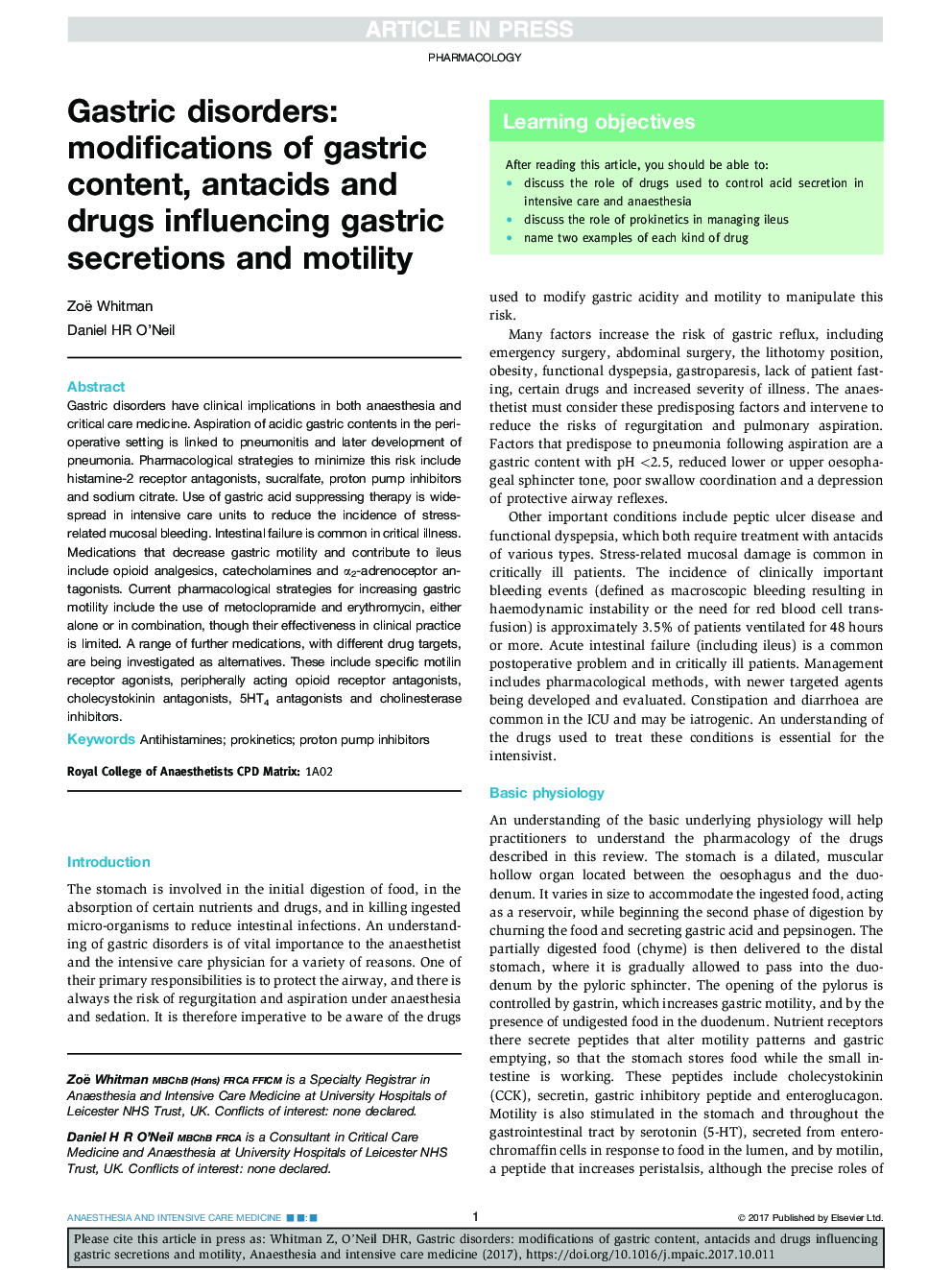| Article ID | Journal | Published Year | Pages | File Type |
|---|---|---|---|---|
| 8610145 | Anaesthesia & Intensive Care Medicine | 2018 | 5 Pages |
Abstract
Gastric disorders have clinical implications in both anaesthesia and critical care medicine. Aspiration of acidic gastric contents in the perioperative setting is linked to pneumonitis and later development of pneumonia. Pharmacological strategies to minimize this risk include histamine-2 receptor antagonists, sucralfate, proton pump inhibitors and sodium citrate. Use of gastric acid suppressing therapy is widespread in intensive care units to reduce the incidence of stress-related mucosal bleeding. Intestinal failure is common in critical illness. Medications that decrease gastric motility and contribute to ileus include opioid analgesics, catecholamines and α2-adrenoceptor antagonists. Current pharmacological strategies for increasing gastric motility include the use of metoclopramide and erythromycin, either alone or in combination, though their effectiveness in clinical practice is limited. A range of further medications, with different drug targets, are being investigated as alternatives. These include specific motilin receptor agonists, peripherally acting opioid receptor antagonists, cholecystokinin antagonists, 5HT4 antagonists and cholinesterase inhibitors.
Related Topics
Health Sciences
Medicine and Dentistry
Anesthesiology and Pain Medicine
Authors
Zoë Whitman, Daniel H.R. O'Neil,
